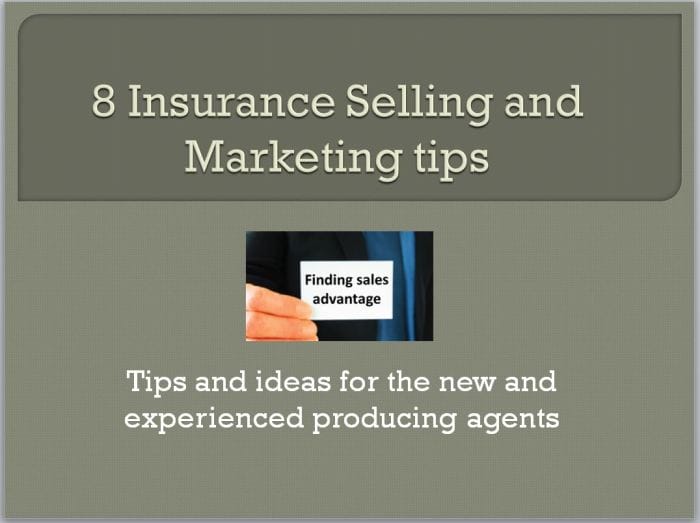In today’s uncertain world, securing the financial well-being of loved ones has become more critical than ever. Life insurance serves as a safety net, providing peace of mind knowing that your family’s future is protected. As an insurance professional, embracing effective marketing strategies is the key to unlocking success in selling life insurance.
The journey of selling life insurance extends beyond mere transactions; it’s about building trust, understanding unique customer needs, and presenting the value of life insurance in a compelling manner. This comprehensive guide delves into the intricacies of marketing life insurance, empowering you with proven techniques, industry insights, and strategies to excel in this noble profession.
Insurance Policy Types
Navigating the complexities of life insurance policies can be daunting. Understanding the various types of policies empowers you to make informed decisions that align with your financial goals and circumstances.
Life insurance policies generally fall into four main categories: term, whole, universal, and variable. Each type offers unique features and benefits tailored to different needs and budgets.
Term Life Insurance
Term life insurance provides coverage for a specific period, typically ranging from 10 to 30 years. It offers affordable premiums and straightforward coverage, making it a suitable option for those seeking temporary protection, such as covering a mortgage or providing income replacement during working years.
Whole Life Insurance
Whole life insurance offers lifelong coverage and accumulates cash value over time. This cash value can be accessed through loans or withdrawals, providing additional financial flexibility. Whole life insurance is ideal for those seeking long-term protection and a savings component.
Universal Life Insurance
Universal life insurance combines the flexibility of term life insurance with the cash value accumulation feature of whole life insurance. It allows policyholders to adjust their premiums and death benefits, providing customizable coverage that can adapt to changing circumstances.
Variable Life Insurance
Variable life insurance is a hybrid policy that combines life insurance coverage with the potential for investment growth. The cash value component is invested in sub-accounts, which can include stocks, bonds, or money market funds. Variable life insurance offers the potential for higher returns, but also carries investment risk.
Target Audience

Understanding your target audience is the foundation of any successful sales strategy. When it comes to selling life insurance, identifying individuals who are in need of coverage is essential.
Life insurance is a financial product designed to provide a death benefit to beneficiaries in the event of the insured’s death. This benefit can help replace lost income, cover final expenses, and provide financial support to loved ones.
Key Demographics
The key demographics of individuals who need life insurance include:
- Age: Individuals between the ages of 25 and 65 are typically the primary targets for life insurance.
- Income: Individuals with higher incomes are more likely to need life insurance to protect their earning potential.
- Family Situation: Individuals with spouses, children, or other financial responsibilities are more likely to need life insurance.
- Health: Individuals with serious health conditions may need life insurance to provide financial security for their loved ones.
Psychographics
The psychographics of individuals who need life insurance include:
- Risk Aversion: Individuals who are risk-averse are more likely to purchase life insurance as a means of protecting themselves and their loved ones from financial uncertainty.
- Financial Literacy: Individuals who are financially literate are more likely to understand the importance of life insurance and to be proactive in purchasing coverage.
- Life Stage: Individuals who are at life stages where they have significant financial responsibilities, such as young professionals with families or individuals approaching retirement, are more likely to need life insurance.
Benefits and Advantages

Life insurance offers a range of financial benefits and advantages that provide peace of mind and security for individuals and their families.
One of the primary benefits of life insurance is the death benefit. This benefit provides a lump sum payment to the policyholder’s beneficiaries upon their death. This payment can be used to cover various expenses, such as funeral costs, outstanding debts, and mortgage payments, ensuring that the policyholder’s family is not left with a financial burden.
Cash Value Accumulation
Many life insurance policies also offer a cash value component, which grows over time on a tax-deferred basis. This cash value can be borrowed against or withdrawn for various purposes, such as education expenses, retirement planning, or emergencies.
Tax Advantages
Life insurance policies offer several tax advantages. The death benefit is generally not subject to income tax, and the cash value accumulation grows tax-deferred. This means that policyholders can accumulate wealth without paying taxes on the growth until it is withdrawn.
Real-Life Stories
The impact of life insurance on families can be profound. Consider the story of Sarah, a single mother who purchased a life insurance policy to ensure her young daughter’s financial security. When Sarah passed away unexpectedly, the death benefit from her life insurance policy provided her daughter with the financial resources she needed to continue her education and pursue her dreams.
Common Objections and Concerns

Potential customers may express various objections and concerns regarding life insurance. Addressing these concerns proactively can help insurance professionals effectively communicate the value and necessity of life insurance.
Affordability
Concern: Life insurance is expensive and unaffordable.
Response: Life insurance premiums can vary based on factors such as age, health, and coverage amount. It is important to note that life insurance is a long-term investment that provides financial protection for loved ones. By carefully evaluating individual needs and circumstances, insurance professionals can help customers find affordable life insurance options that fit their budget.
Complexity
Concern: Life insurance policies are complex and difficult to understand.
Response: While some life insurance policies may have intricate details, insurance professionals are equipped to provide clear explanations and guidance. They can help customers understand the different types of policies, coverage options, and riders available. By simplifying the complexities, insurance professionals can help customers make informed decisions that align with their needs and goals.
Application Process
Concern: The application process for life insurance is lengthy and intrusive.
Response: While the application process may require personal information, it is designed to assess the applicant’s health and lifestyle factors accurately. This information is essential for determining the appropriate coverage and premium rates. Insurance professionals can guide customers through the application process, ensuring that it is completed efficiently and accurately.
Effective Sales Techniques
Selling life insurance requires a unique blend of empathy, knowledge, and effective sales techniques. Here are proven strategies to help you succeed:
Building Rapport
Establishing a strong connection with your clients is crucial. Show genuine interest in their lives, listen actively, and demonstrate empathy. Building trust is key to earning their confidence and making them receptive to your recommendations.
Understanding Customer Needs
Take the time to thoroughly understand your clients’ financial situation, family circumstances, and long-term goals. This personalized approach allows you to tailor your recommendations to their specific needs and concerns, increasing the likelihood of a successful sale.
Presenting Benefits in a Compelling Manner
When presenting life insurance benefits, focus on the emotional and financial security it provides. Paint a vivid picture of how life insurance can safeguard their loved ones’ future, ensure their children’s education, and protect their family’s financial stability in case of unforeseen events.
Addressing Objections and Concerns
Be prepared to address common objections and concerns that clients may raise. Anticipate their questions and have well-prepared responses that highlight the value and necessity of life insurance. Remember to be patient, empathetic, and understanding throughout the process.
Building Trust and Credibility

Establishing trust and credibility is crucial in life insurance sales. Potential customers need to feel confident in your knowledge, expertise, and integrity before they commit to purchasing a policy.
Active Listening
Demonstrate active listening by paying full attention to your customers’ needs and concerns. Ask open-ended questions, maintain eye contact, and avoid distractions. This shows that you genuinely care about their situation and are committed to finding the best solution for them.
Overcoming Competition

In the competitive landscape of life insurance, it’s crucial to set yourself apart from competitors and attract potential customers.
Analyze the Competition
Begin by thoroughly understanding the competitive landscape. Research the offerings, pricing, and marketing strategies of your competitors. Identify their strengths and weaknesses, and use this knowledge to develop a unique value proposition.
Differentiate Your Offerings
Highlight the unique features and benefits of your life insurance products and services. Consider offering customized policies, competitive rates, innovative riders, or exceptional customer service. Emphasize how these differentiators address the specific needs and concerns of your target audience.
Target Niche Markets
Consider focusing on niche markets that are underserved or overlooked by competitors. This could involve targeting specific demographics, professions, or industries. By catering to a specialized niche, you can establish a strong presence and become a trusted provider within that market.
Build Strong Relationships
Develop strong relationships with key stakeholders in the life insurance industry, such as brokers, agents, and financial advisors. By fostering these relationships, you can increase referrals and expand your customer base. Offer ongoing support, training, and resources to help them succeed, as their success directly contributes to your own.
Leverage Technology
Utilize technology to enhance your marketing and sales efforts. Implement a user-friendly website, utilize social media platforms, and consider offering online quotes and applications. By embracing technology, you can reach a wider audience, improve customer engagement, and provide a seamless experience.
Marketing Channels and Strategies

Selecting the appropriate marketing channels and implementing effective strategies are vital for successful life insurance sales. This section explores various channels and provides tailored strategies for each, considering target audience and budget constraints.
Online Advertising
Harnessing the power of online advertising offers a targeted and cost-effective approach to reach potential customers. Effective strategies include:
- Search Engine Optimization (): Optimize website content and structure to improve search engine rankings, increasing organic traffic.
- Pay-Per-Click (PPC) Advertising: Utilize platforms like Google AdWords and social media platforms to display ads relevant to specific s or demographics, charging only when users click on the ad.
- Social Media Marketing: Engage with potential customers on social media platforms by creating informative and engaging content, running targeted ads, and utilizing influencer marketing.
Social Media
Social media platforms provide an effective channel to connect with potential customers, build relationships, and promote life insurance products. Key strategies include:
- Content Marketing: Create and share valuable, informative content that educates and engages your target audience, establishing your brand as a trusted resource.
- Paid Advertising: Utilize social media platforms’ advertising options to target specific demographics and interests with tailored ads.
- Community Engagement: Actively participate in relevant online communities and forums, providing valuable insights and establishing yourself as an expert in the field.
Referrals
Leveraging referrals from existing customers is a powerful way to generate new leads. Strategies to encourage referrals include:
- Referral Programs: Implement a formal referral program that rewards customers for referring new clients, incentivizing them to spread the word.
- Customer Appreciation: Express gratitude to loyal customers through personalized thank-you notes, gifts, or exclusive offers, increasing the likelihood of referrals.
- Exceptional Customer Service: Delivering exceptional customer service builds strong relationships, making customers more inclined to recommend your services to others.
Partnerships
Collaborating with other businesses or organizations can expand your reach and generate new leads. Effective partnership strategies include:
- Strategic Alliances: Partner with complementary businesses, such as financial advisors or estate planning attorneys, to cross-promote products and services, reaching a wider audience.
- Joint Ventures: Engage in joint ventures with other insurance companies or agencies to pool resources, share risks, and access new markets.
- Affiliate Marketing: Collaborate with influencers or bloggers in the finance or insurance niche to promote your products or services through their platforms, earning a commission on successful referrals.
Customer Service and Support
In the life insurance industry, exceptional customer service and support are crucial for building lasting relationships with clients and ensuring their satisfaction. Providing personalized attention, addressing inquiries promptly, and resolving complaints efficiently are essential to maintaining a positive customer experience.
By prioritizing customer service, insurance companies can foster trust, loyalty, and positive word-of-mouth, leading to increased sales and long-term business growth.
Handling Customer Inquiries
Insurance companies should establish efficient systems for handling customer inquiries, ensuring prompt responses and accurate information. This includes providing multiple communication channels, such as phone lines, email, and online chat, to accommodate customer preferences.
Customer service representatives should be knowledgeable, empathetic, and proactive in resolving customer queries. They should provide clear and concise explanations, ensuring that customers understand their policies and coverage options.
Resolving Complaints
When handling customer complaints, insurance companies should adopt a fair and transparent approach. Complaints should be acknowledged promptly, and customers should be kept informed of the progress of their case.
Insurance companies should investigate complaints thoroughly and respond with empathy and understanding. They should strive to resolve complaints quickly and fairly, ensuring customer satisfaction and maintaining a positive relationship.
Ensuring Customer Satisfaction
Customer satisfaction is the ultimate goal of any insurance company. By providing excellent customer service and support, insurance companies can build strong relationships with their clients, leading to increased retention and referrals.
Regularly monitoring customer feedback and implementing improvements based on customer input can help insurance companies continuously enhance their service quality and maintain a high level of customer satisfaction.
Legal and Ethical Considerations
Life insurance agents have a fiduciary responsibility to their clients, which means they must act in the best interests of the client at all times. This includes being aware of the legal and ethical considerations that apply to the sale of life insurance.explanatory
paragraphThere are a number of legal and ethical considerations that life insurance agents must be aware of when selling life insurance. These include:
Misrepresentation and Fraud
Misrepresenting the terms of a policy or making false statements about the benefits of a policy is illegal. Agents must be truthful and accurate in their representations of the policy. Fraudulent practices can result in legal penalties, including fines, imprisonment, or both.
Unfair Sales Practices
Engaging in unfair sales practices, such as high-pressure sales tactics or making misleading statements, is also illegal. Agents must be respectful of the client’s wishes and should not pressure them into buying a policy they do not need or cannot afford.
Conflicts of Interest
Agents must disclose any conflicts of interest they may have, such as receiving commissions from multiple insurance companies. This ensures that the agent is acting in the best interests of the client and not their own financial interests.
Privacy
Agents must protect the privacy of their clients. This includes keeping their personal information confidential and not sharing it with anyone without their consent.
Continuing Education
Agents must complete continuing education courses to stay up-to-date on the latest changes in the insurance industry. This ensures that they are providing their clients with the best possible advice.
Final Summary

Remember, selling life insurance is not just about closing deals; it’s about making a meaningful difference in people’s lives. By embracing ethical practices, providing exceptional customer service, and continuously seeking knowledge, you can establish yourself as a trusted advisor and achieve remarkable success in the life insurance industry.
Common Queries
What are some common objections potential customers might have about life insurance?
Common objections include concerns about affordability, the complexity of policies, and the application process. It’s crucial to address these objections with empathy and provide clear explanations, emphasizing the value and necessity of life insurance.
How can I build trust and credibility with potential customers?
Building trust is essential in selling life insurance. Active listening, empathy, and transparency are key. By understanding their unique needs and concerns, you can establish a strong rapport, leading to increased sales and customer loyalty.
What are some effective marketing channels for selling life insurance?
Effective marketing channels include online advertising, social media, referrals, and partnerships. Each channel has its strengths; choosing the right ones based on your target audience and budget is crucial. Creating a comprehensive marketing strategy that utilizes a mix of channels can yield optimal results.



